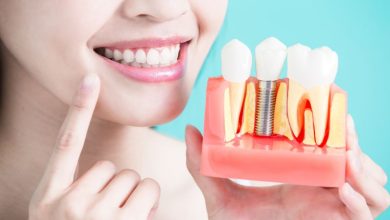10 Key vitamins and Mineral Your Body Required

Key Vitamins and Minerals Your Body Requires
AMINO ACID
Vitamin A is a fat-soluble vitamins required for immune system function, eyesight, and cell development and differentiation. In cells, it works as an antioxidant and aids in the healing of damage.
It also aids in preventing age-related macular degeneration (AMD), which is a significant cause of visual loss. Foods high in vitamin A include liver, pork, fish, and dairy products.
Cantaloupe, carrots, mangoes, sweet potatoes, and apricots are examples of orange fruits and vegetables that contain beta-carotene. Spinach, red peppers, and broccoli all contain it.
B1 VITAMINS (THIAMINE OR THIAMIN)
The body requires vitamin B1, also known as thiamine, for energy metabolism and cell growth, function, and development. Thiamine is also required for optimal brain functioning. Meat, seafood, and whole grains all contain it. Vitamin B1 is commonly added to breakfast cereals.
Thiamine requirements are higher in pregnant or nursing women. Low levels of this vitamins are standard in people with certain illnesses, such as HIV, diabetes, and alcoholism.
Due to malabsorption, those who have bariatric surgery may develop thiamine deficiency. Weight loss, memory loss, muscle weakness, an enlarged heart, and mental signs and symptoms are all indications and symptoms of thiamine deficiency.
B2 VITAMINS (RIBOFLAVIN)
Vitamin B2, also known as riboflavin, is a B vitamin that the body requires for energy production and cell growth, function, and development. It’s also involved in the breakdown of medicines and lipids. The vitamins is a vibrant yellow color.
Organ meats, eggs, milk, lean meats, and vegetables all contain it. Riboflavin is added to cereals and certain grains. Vegetarians and vegans may suffer from riboflavin deficiency. Supplemental riboflavin might be a helpful therapy for migraine sufferers. Urine may become a bright yellow hue after taking a riboflavin supplement.
B3 VITAMIN (NIACIN)
Vitamin B3, often known as niacin, is a B vitamin that the body requires to convert and store food into energy. It also supports the health of the skin, tissues, and digestive system while aiding neurological function. Milk, eggs, canned tuna, lean meats, fish, peanuts, beans, and poultry all contain niacin. Milk, eggs, grains, lean meats, peanuts, poultry, legumes, and fortified cereals and breads all contain niacin.
Pellagra is the result of a vitamin B3 deficiency. Mental issues, dementia, digestive issues, and rashes are all symptoms of the disease. Standard or large dosages of niacin as a supplement may cause flushing, including redness, a warm feeling on the skin, and itching or tingling in the face, arms, neck, or upper chest.
When taking niacin, avoid consuming alcohol and hot beverages since they might exacerbate flushing. Newer vitamins formulations (nicotinic acid and nicotinamide) reduce or eliminate flushing.
B6 VITAMIN
Vitamin B6 is a B vitamin that is required for over 100 distinct bodily processes. It is necessary for healthy brain function, the production of neurotransmitters, and the regulation of mood. You may prevent colorectal cancer, cognitive loss, and premenstrual syndrome by taking this vitamin (PMS).
Beef liver, lean meat, legumes, seafood, leafy greens, starchy vegetables like potatoes, and fruits are all excellent sources of this vitamins (excluding citrus fruit). Vitamin B12 is also found in fortified grains.
Muscle weakness, irritability, sadness, anxiety, difficulty concentrating, and short-term memory loss are all symptoms of vitamin B6 insufficiency.
B12 VITAMINS
Vitamin B12, also known as cobalamin, is a vitamin that aids in the digestion of food for energy. It’s used by your body to make red blood cells and DNA. It’s also required for appropriate neurological function. The production of SAMe, a chemical required by your body for the production of genetic material, proteins, hormones, and lipids.
Clams, liver, fortified cereal, fish, pork, dairy products, and eggs all contain vitamin B12. A vitamin B12 deficiency can cause tiredness, weakness, constipation, weight loss, lack of appetite, and neurological issues. It also includes depression, memory loss, forgetfulness, dementia, balance problems, numbness, and tingling in the hands and feet.
Those with gastrointestinal diseases that impair nutritional absorption (celiac disease, pernicious anemia, atrophic gastritis), vegetarians, pregnant or nursing vegetarians are all at risk for B12 insufficiency. Their children may also have a B12 deficit. People in these groups should take vitamin B12 supplements.
Vitamin C (VITAMIN C)
Vitamin C (also known as ascorbic acid) is an antioxidant that your body needs to keep your bones, skin, and muscles healthy. Lemons, papaya, strawberries, orange juice, kiwi, bell peppers, cantaloupe, broccoli, and other fruits and vegetables are good sources of vitamin C.
The majority of individuals consume adequate vitamin C in their regular meals. Vitamin C can not prevent colds, contrary to popular perception, although it may help decrease the duration of a typical cold if taken consistently. Because vitamin C is a water-soluble vitamin, you must consume vitamin C-rich foods or take a supplement regularly to ensure appropriate levels.
Scurvy (swollen, bleeding gums, loose teeth, and poor wound healing) was caused by a vitamin C deficit among sailors and those who ate a diet deficient in fresh citrus fruits and vegetables. Despite reports that large dosages of vitamin C efficiently cure the coronavirus COVID-19, there is no scientific evidence to support this claim.
Also read: Benefits of Cycling
CALCIUM
Calcium is an essential element that aids in the formation of your teeth and bones. It’s also required for muscular contractions, as well as the regular operation of the heart. Milk, yogurt, and cheese are excellent calcium-rich foods.
Calcium may also be found in broccoli and green leafy vegetables like kale. Calcium is found in sardines and salmon with bones. Calcium-fortified orange juice and cereal are other good sources of calcium. The amount of calcium you need daily depends on your age and gender. Calcium deficiency is a concern for some populations of people.
Calcium levels may be low in postmenopausal women, vegans, vegetarians, and women who do not have periods owing to anorexia or excessive athletics. Consult your doctor about taking a calcium supplement. Whether you’re taking any medicines, check with your doctor or pharmacist to see if calcium supplements may interact with them.
CHROMIUM
People only require trace quantities of chromium since it is a trace mineral—chromium aids in regulating blood sugar levels in the body. Chromium may be found in broccoli, grape juice, English muffins, potatoes, and garlic.
You may excrete more chromium in your urine if you’re sick, anxious, pregnant, or nursing. Exercising excessively may also deplete chromium stores. Chromium loss is accelerated by a diet high in simple carbohydrates, which your body can easily break down.
Weight-loss supplements containing chromium are advertised. However, there is no scientific evidence to support these claims.
D-VITAMINS
Vitamin D is a fat-soluble vitamin that helps the body regulate cell growth, decrease inflammation, and boost immune function. It also help you in the fight against infection (even viral infections like coronavirus COVID-19 SARS-CoV-2).
When coupled with calcium, vitamin D assists in the preservation of strong, healthy bones and the prevention of osteoporosis. Vitamin D is abundant in fatty fish such as salmon, mackerel, and tuna. Egg yolks have fewer calories.
Fortified milk and orange juice are also good sources of vitamin D. On a clear day, the best way to get vitamin D is to spend 10-15 minutes outside in the sun without sunscreen. Your skin generates vitamin D when it is exposed to the sun. Make sure you don’t overheat! Excessive sun exposure and sunburns raise the risk of skin cancer.





